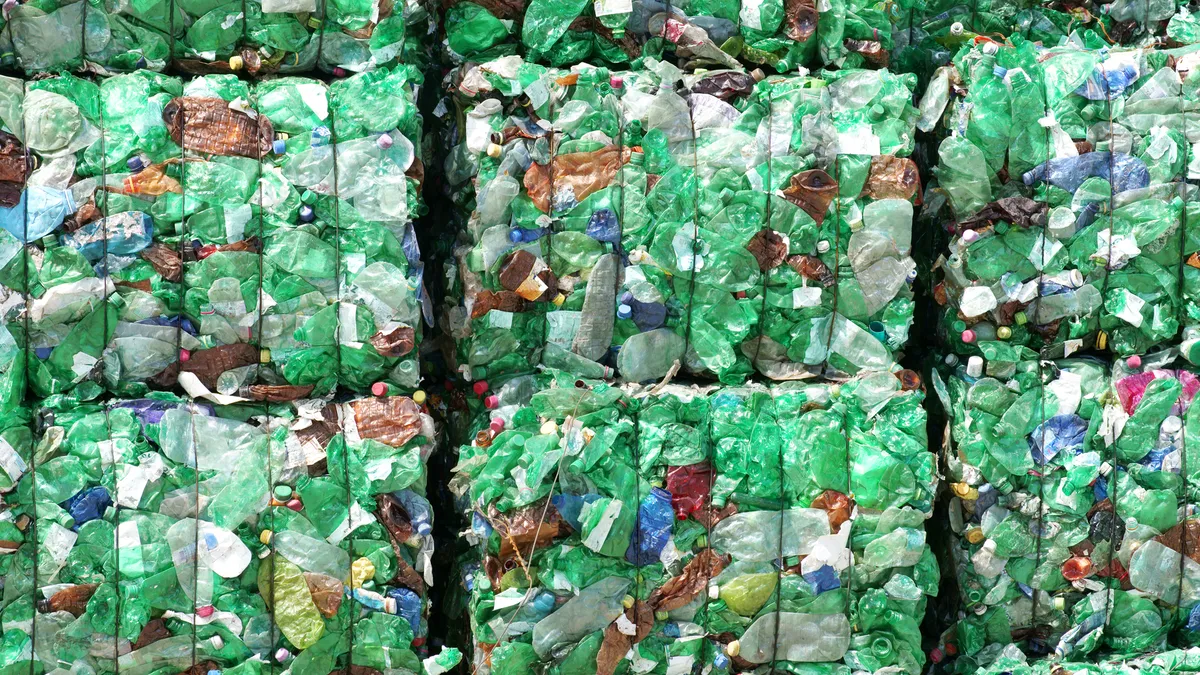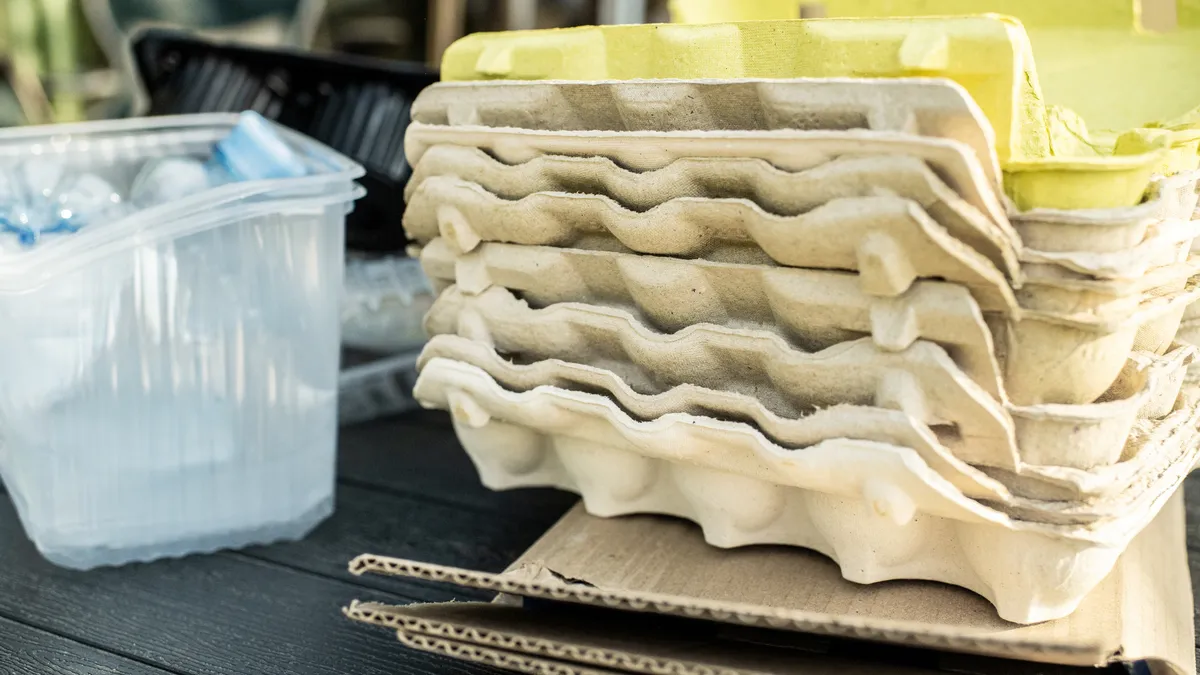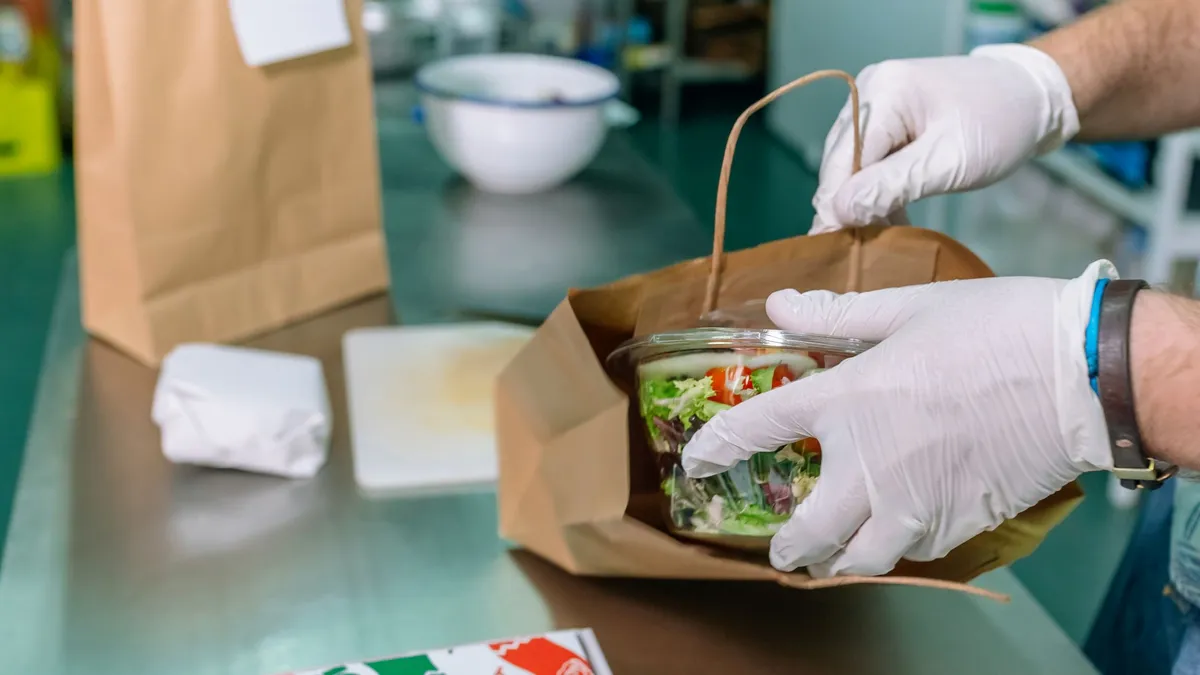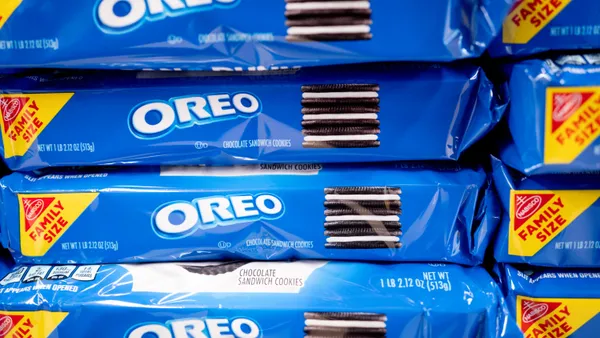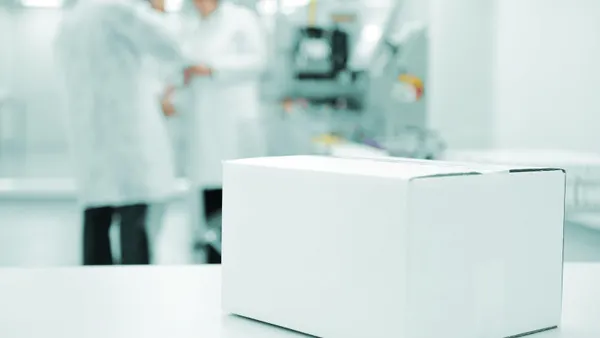Major CPG companies have made varied progress toward their 2025 plastics goals, new data shows.
The Ellen MacArthur Foundation released that data Monday along with a report covering overall progress in 2023 by participants in the organization’s global commitment, aimed at eliminating plastic waste and pollution.
Some of the key overall 2025 targets in the global commitment that CPGs are working to achieve include an 18% reduction in virgin plastic use, 26% postconsumer recycled content use and making 100% of packaging reusable, recyclable or compostable. Individually, these companies also set their own targets in some categories.
Global commitment signatories are lagging the necessary pace of change for plastics management to meet many of their 2025 targets. But there are also examples of notable progress, with some companies achieving a few targets early.
In a news release Monday, SC Johnson touted its global commitment progress. It reduced virgin plastic use by 32% from the 2018 baseline, surpassing the 30% by 2025 goal, and it reached 25% PCR materials across its portfolio, meeting the milestone a year early. SC Johnson leads top CPGs in EMF’s virgin plastic reduction category and comes in second in the PCR category, only exceeded by L’Oréal at 32%.
“Despite our progress and the industry’s forward movement, there is still much to be done,” Fisk Johnson, CEO of SC Johnson, said in the release.
Looking at the top companies by revenue, four CPGs reported an increase — not the desired decrease — in virgin plastic use: Kellogg, Mars, PepsiCo and Coca-Cola. But Coca-Cola leads these CPGs in progress toward reaching 100% reusable, recyclable or compostable packaging, as the only company so far to achieve that goal.
Multiple signatories flagged throughout this year that they might miss certain targets. When PepsiCo released its sustainability report in June, it projected that it would miss targets such as making all of its packaging reusable, recyclable or compostable. A similar scene unfolded the following month when Mars released its sustainability report, with the company admitting that meeting the EMF global commitment goals is “taking longer than we anticipated” and “we are unlikely to fully meet them by the end of 2025.” And Coca-Cola said in August that it is unlikely to meet its recycled content goal.
Unilever, considered by many to be a leader for its plastics sustainability work, was at the forefront of these shifts in 2024. It said this spring that it changed sustainability targets for plastic packaging amid difficulties meeting the 2025 deadlines, with CEO Hein Schumacher stating the intention to become “unashamedly, realistic.”
Mirroring this trend among EMF global commitment signatories, other organizations have signaled that their members likely won’t meet certain 2025 targets. The U.S. Plastics Pact noted in its annual report that its participants, called activators, made gains on eliminating problematic plastics and designing packaging for recyclability, but they had trouble with increasing PCR use.
USPP indicated its activators would continue their work on plastic packaging circularity even if they fall short of targets by the 2025 deadline. The group released a new road map this summer, underscoring ongoing work toward goals that are unlikely to be met, while introducing 2030 goals.
Other groups also have expressed companies’ plans to stay the course regardless of whether they meet 2025 deadlines. Earlier this year, when discussing research and consulting firm Gartner’s January assertion that brands largely aren’t on track and 20% may shift their plastics goals, Association of Plastic Recyclers CEO Steve Alexander said that numbers are just short-term goals and should be treated as such. He said not meeting certain numbers by stated deadlines doesn’t mean “we’re going to throw up our hands and walk away.”



